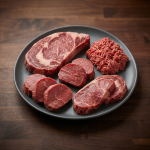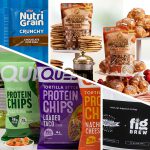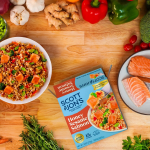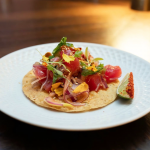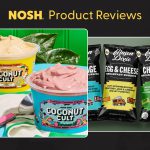Why WNWN Wants To Play Ball With Big Chocolate
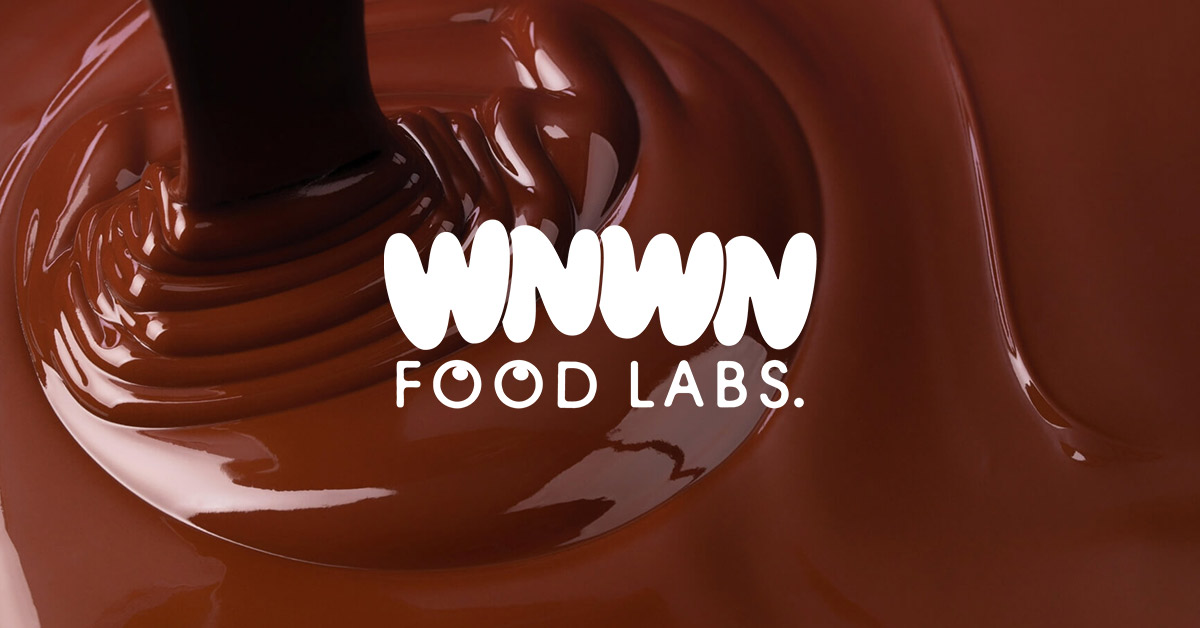
The term ‘sustainability’ is increasingly evolving beyond environmental preservation to encompass the long-term viability of a business through the lens of its ESG practices.
According to Johnny Drain, WNWN co-founder and chief technology officer, environmental sustainability, coupled with a strong focus on rectifying industry-specific supply chains littered with humanitarian and labor issues, has shaped the playbook for food tech players’ trying to win the support of multinational food corporations.
WNWN, or “Win-Win” as it is pronounced, is a cocoa-free chocolate company co-founded in 2021 by Drain, a fermentation expert, and CEO Arhum Pak, a former investment banker turned social entrepreneur. The London-based company has raised over $6 million for its fermented barley and carob-based alt-chocolates and it is gearing up to launch dark chocolate, milk chocolate and dairy-free milk chocolate alternatives in the U.K.
“When you start digging under the skin of almost everything, unfortunately, lots of industries [sold across U.K. and U.K. supermarkets] hide pretty dark damning secrets,” Drain said. That exploration led them to chocolate. The sector had well-documented labor and environmental issues, but at the time was not the focus of socially-conscious food tech entrepreneurs.
Now three years in and on the cusp of commercializing its alt-chocolates for a U.K. audience – Drain emphasized that WNWN’s growth strategy still relies heavily on winning the support of big chocolate. It recently completed Mondelēz’s CoLab Tech accelerator, giving the co-founders a direct opportunity to engage with a company whose supply chain it hopes to eventually infiltrate.
“We have to have an impact at a large scale and that means whether we like it or not… We have to play ball and interface with these giant multinationals,” said Drain. “Between 10 to 15 of them, they have more or less the entire chocolate industry absolutely sewed up.”
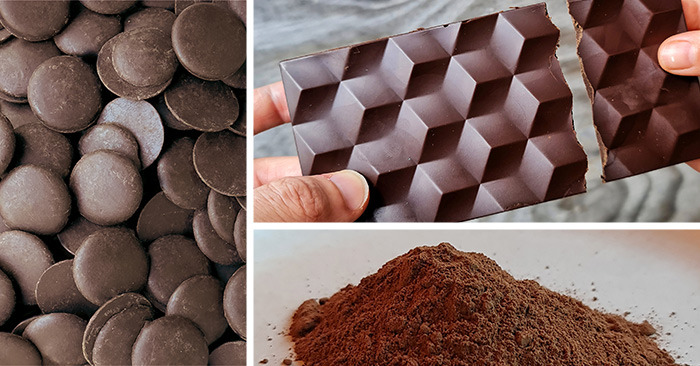
Making Chocolate Without Cocoa Beans
Prior to WNWN, Drain spent over ten years working with bars and restaurants to develop sustainable menu solutions through fermentation. He said the question “can you make chocolate without a cocoa bean?” had been on his mind for some time.
After teaming up with Pak, he began working to “reengineer” the flavors of chocolate using ingredients that had environmentally positive, non-controversial supply chains. Like many foods including coffee and alcohol, fermentation is a key function to bring out various notes and flavors. That meant he already “knew where to look.”
WNWN’s cocoa-free chocolate is made through a proprietary process with primarily U.K.- and Europe-sourced barley and carob. The fermented product is then processed like regular chocolate to create both solid bars and “easy-melt” buttons as well as cocoa powder. The result is a chocolate-like product that does not contain caffeine, dairy or theobromine but “tastes, smells, melts [and] snaps,” like the real thing, according to WNWN.
That base varies a bit from the other alt-cocoa competitors, or “co-category creators” as Drain refers to them. Planet-A-Foods, which sells under the name ChoViva, uses a combination of oats and sunflower seeds. Voyage combines sugar, vegetable oil (including RSPO Palm Oil) and grape seeds to produce its cocoa-free treats. Despite the different approaches, all of these companies are working to build both consumer brands and B2B businesses.
“This is a brand new category that we’re co creating with a couple of others… we’ve met them all and they’re all really lovely people and they’re doing the same thing for the same reasons,” Drain detailed. “But [right now] if you go to someone in a supermarket or on the street and say ‘would you want to try some cocoa-free chocolate’ before they say ‘yes’ or ‘no,’ they’ll probably say: ‘what the f— is cocoa-free chocolate?’”
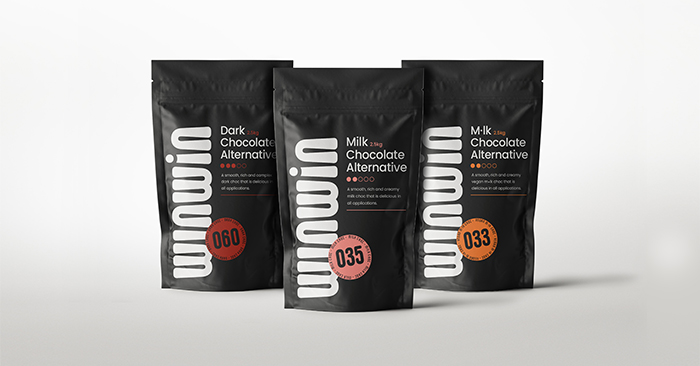
Educating The Masses
That question is why WNWN believes it’s essential to begin winning support from and collaborating with the Nestlés, Mondelēz and Ferreros of the world as soon as possible. The company has cast a wide net, currently running 15 pilot programs that include everything from high-end restaurants in France to pastry shops in the U.S.
“If you think of where you interfaced last with chocolate, you come across it in the supermarket, in the corner shop, in a restaurant. There’s lots of touch points, and so all of those people that make those products [are] interested in what we’re doing.”
Its first official partnership with German bakery company Martin Braun-Gruppe brought a cocoa-free “chocolate” croissant to market in 2023; the team is working on developing additional products with the bakery. According to Drain, there are no definitive plans to work with Mondelēz following the close of the CoLab program, but the company hopes to continue cultivating that relationship.
“[We are] trying to move the needle on their supply chain, which is massive, huge – it’s gonna take ages for even a tiny little vibration to happen – but building relationships, getting to stand up in a room with them and say, ‘hey, this is what we’re worried about, why and this is how we think we can address some of those things,’ that relationship building is hopefully changing hearts and minds.”
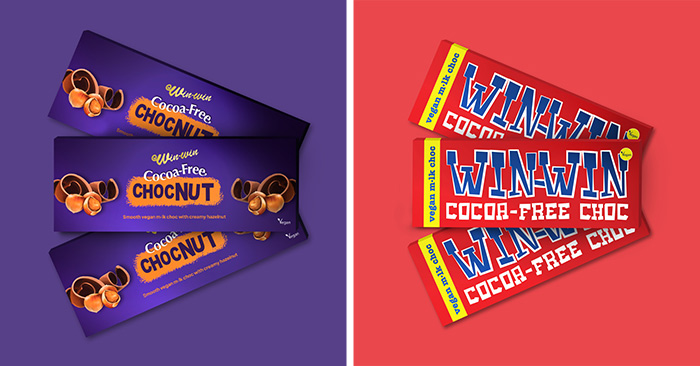
And they aren’t being shy about how those relationships are built. In October, WNWN launched three limited-edition chocolate bars that parodied popular chocolate brands while featuring its cocoa-free ingredient. Drain believes campaigns and marketing efforts in that vein will help spark curiosity and interest from consumers.
“We’re happy to poke fun at [big chocolate] and say, ‘you should be held accountable for the things that you’re doing,’ [but] we also want to interface with them and work with them,” said Drain. “[We can say], ‘this is how your supply chain currently works. It has these damages. You’re well aware of these damages, but you could, by using our solution, mitigate or diminish some of those challenges.”
When it comes to winning over consumers at checkout, Drain said the company plans to lead with the product’s taste and cultivate intrigue around the cocoa-free chocolate concept. He said that while it could lead with messaging around the ethical and environmental impact of its products, it is wary of turning off certain consumers who “don’t want to be preached at.”
“We believe we’ve got a very delicious product,” stated Drain. “If we lead with that and say, like, hey, you know, I’m inviting you to try this. And if you’re curious about why we’ve done what we’ve done and why it’s not chocolate, then you can come to us and seek out more information.”



